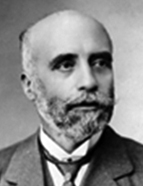

In the ensuing years he worked diligently in his private library at his home on D. Carlos Mascarenhas Street to prepare decades of bibliographical and documental notes for publication. In 1929, he reedited an updated version of the dialectological map (Opúsculos, IV) [Booklets, IV]. In 1933, he published the first volume of Etnografia Portuguesa [Portuguese Ethnography] devoted to defining the scope of the discipline, explaining the research sources, the status of ethnological studies in Portugal and working plans in the scientific area. In 1938, he compiled a set of ethnological studies (Opúsculos, V) [Booklets, V], where he revisited topics such as origins, history and formation of the Portuguese people, superstitions, rituals, religions in Lusitania, legends, and songbooks.
A vast list of publications is just a part of the bibliographical legacy of Leite de Vasconcelos. Over a period of almost sixty years, he founded and secured the regular publication of a set of specialised periodicals, assuming the functions of what we nowadays acknowledge to be those of a scientific editor. He was responsible for defining the plans for the journals, for the selection of collaborators and for refining the model of scientific writing in Portugal.
The Revista Lusitana and O Arqueólogo Português contributed not only to the affirmation of Portugal in their respective disciplinary areas but also, and primarily, to the internationalisation of Portuguese scientists, by virtue of an exchange network that Leite had taken great pains to construct. The Revista Lusitana was published regularly between 1887 and 1941, in a total of 38 volumes. In the editorial, published in the first issue, Leite argued for a correlation between ethnographical and linguistic studies: philology being indispensable to the understanding of grammar and the language faculty; ethnology vital to the understanding of literary and historical facts. As an example of scientific guidelines, the journal opened with a study by Adolfo Coelho, in which linguistic data collected in fieldworks were analysed to sustain conclusions of a historical nature. The analytical index of the volumes reveal a preponderance of works from the area of ethnography (popular literature, superstitions, tales, traditions, and adages) and themes of a more linguistic nature (lexical compilations, onomastics, phonetics, and history of the languages) without strict boundaries between the two fields. It is precisely within this bracket that the innumerable dialectological works fall, where the data collection is used to characterise the ethnography of the speakers.
